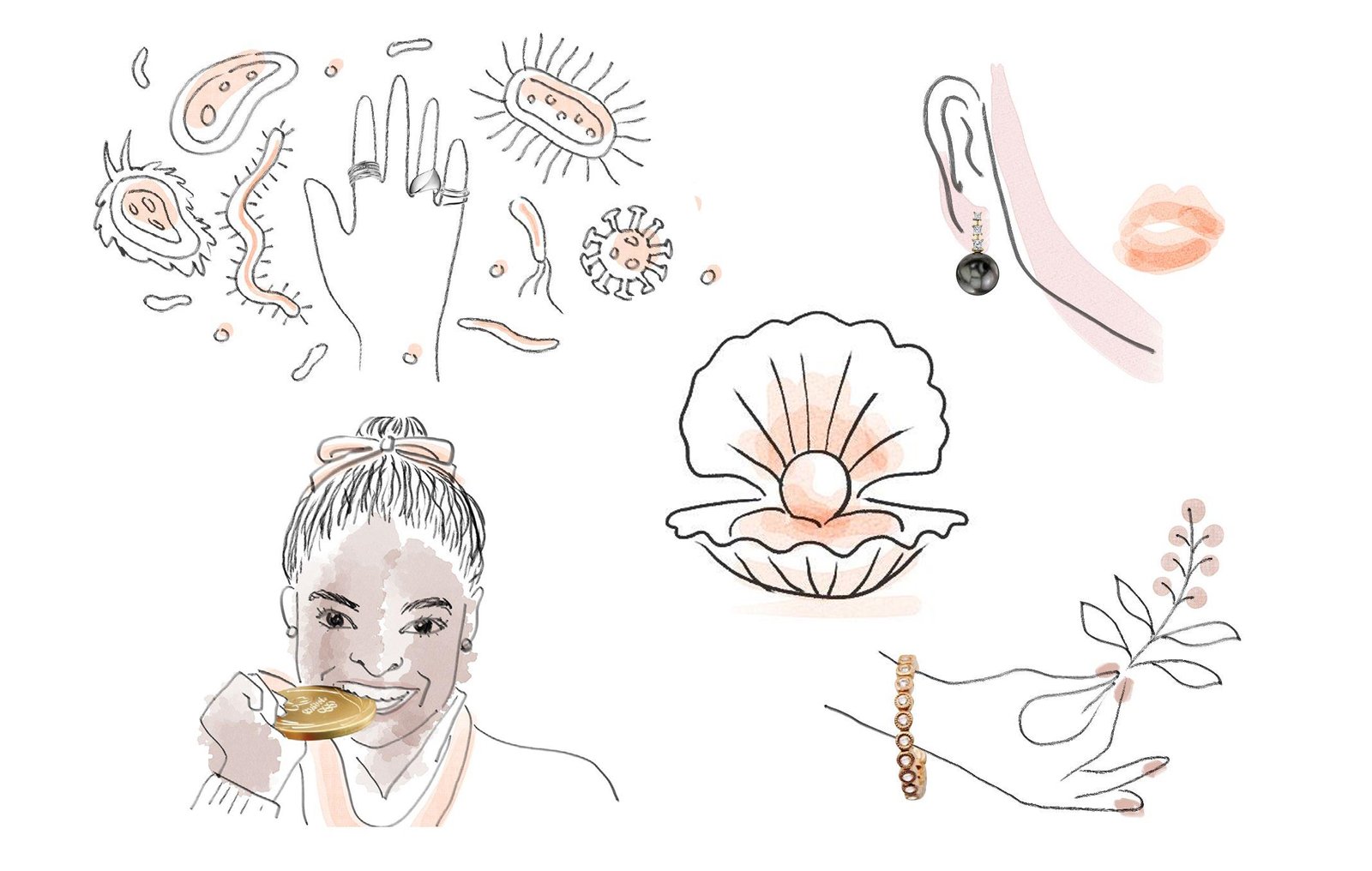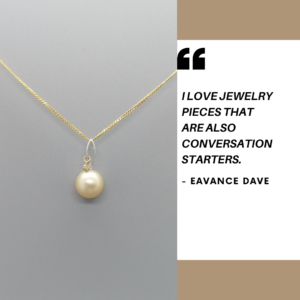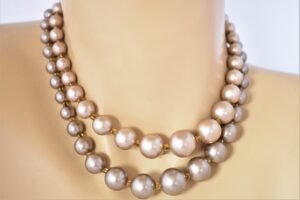[ad_1]
Last Updated on March 31, 2022 by TPS Blog Admin
Have you ever bitten on gold to make sure it was real? Ever removed your silver jewelry before jumping in the shower? Or maybe you passed on a beautiful black pearl necklace thinking those pearls couldn’t possibly be real. Believe it or not, these are myths and urban legends people have passed down as jewelry facts for decades. And it’s time we set the record straight so you can treat your jewelry better and make more informed decisions when shopping for pearls, jewelry, or diamonds.
Here are the most common jewelry myths, busted!
PEARLS
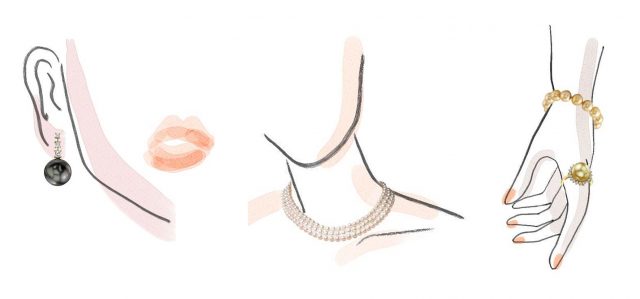
Pearls, famous for their natural beauty and mystery, have a few legends surrounding them that we’re here to debunk.
The Gems of the Seas Only Come from Oysters
Pearl jewelry facts: while most pearls do come from oysters (and commercially cultivated ones are usually farmed from oysters), pearls can be created by all types of mollusks. The animal making the pearl often shifts the color and shape of the pearl.
Pearls Dissolve in Vinegar
If you’ve heard this one before, forget it. While it’s technically correct, the dissolving process would take months if not years. However, we do recommend you avoid getting your pearls wet, as that can damage the jewelry.
Pearls Are Always White
Don’t consider the idea of “pearly whites” as totally true. Pearls can come in different colors with Tahitian black pearls being some of the most rare and beautiful.
Pearls Start Life as a Grain of Sand
While it’s easy to imagine an oyster using a grain of sand to create a pearl, that’s not the only way pearls are created (it’s quite rare actually). Pearl farms, which create many of the pearls used in jewelry, introduce an irritant other than sand, helping the oyster start the pearl making process.
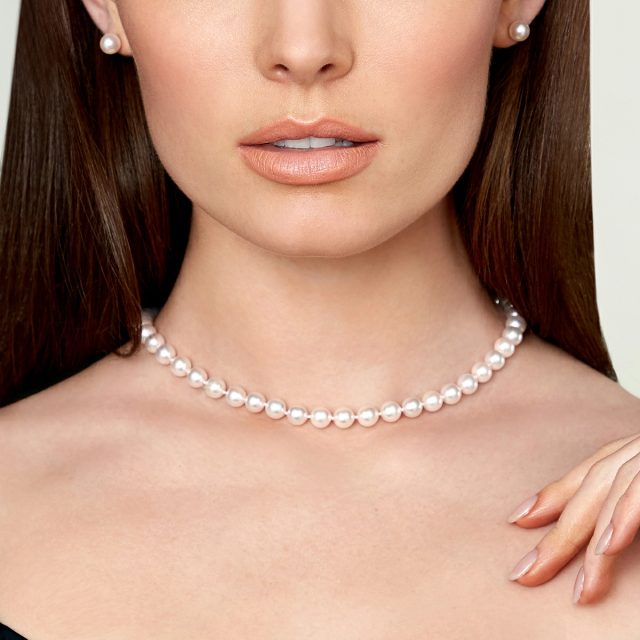
JEWELRY SPOTLIGHT:
Classic, modern, romantic or all of the above, the right Pearl Necklace makes a difference. Whether you’re headed to the office or a cocktail party, pearls have the gift of elevating any type of attire. Shop our selection of Pearl Necklaces featuring timeless pearls at the best prices online.
DIAMONDS & GEMSTONES
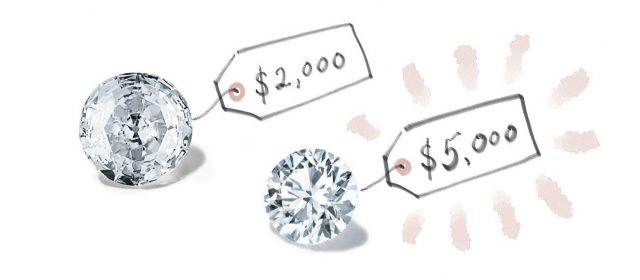
The Bigger the Gem, the More Expensive It Is.
While weight is one of the most important factors contributing to price, it’s not the only one. You can have larger gemstones that aren’t as expensive as smaller ones depending on their clarity, quality of the cut, the shape, where it’s from, and the color.
Diamonds Are Rare
Unfortunately, we have big businesses to blame here. Diamonds are actually quite abundant and they’re used for a number of industrial purposes. Diamond companies act as cartels, controlling the supply and flow of jewelry-quality diamonds, creating artificial scarcity, and driving up the price.
Diamonds Are Indestructible
Diamonds are incredibly durable and one of the hardest naturally occurring materials. Only a diamond can cut another diamond. But here are some real jewelry facts: diamonds are not indestructible. At the right angle and with the right pressure, a diamond can be split open. But don’t worry, this requires an intricate knowledge of the diamond’s structure – it won’t happen with daily wear.
Jewelry Facts or Fiction: Lab-Grown Diamonds Are the Only Ethical Option
Not all mined diamonds are blood diamonds. Some are mined by local mining companies that don’t have ethically dubious connections. You’ll just have to do a bit of research to find them.
Diamonds Can Only Be Found in the African Continent

While most diamonds are mined in various African countries, it’s not the only area diamonds are found. You can actually visit the Crater of Diamonds State Park in Arkansas, where you can mine your own diamond. They have a “find what you keep” policy so if you’re up for the trip, you may be able to find yourself a diamond on vacation!
Gemstones Are Not (Always) Crystals
Crystals have become quite a popular jewelry item but it’s important to note that gemstones are not the same as crystals. Gems are defined by their element and the quality of the item itself while crystals can be made up of any element and are classified by their geometric shapes.
PRECIOUS METALS
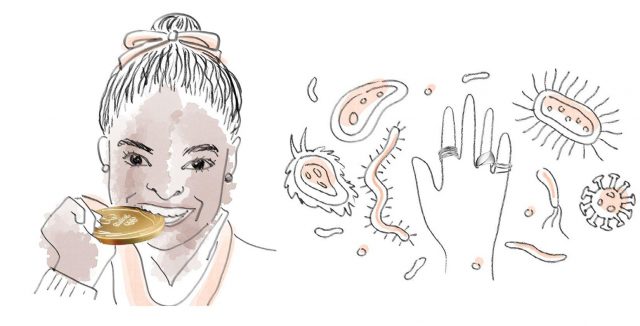
The Bite Test Tests whether Gold Is Real
Technically the bite test works but you may find yourself regretting it. Gold is actually quite soft in its purest form, meaning 24K gold may dent if you start chomping. It’s also quite easy to pass gold plated lead as 18K or 14K gold so just because it’s hard, doesn’t mean its real.
Pure Gold Makes the Best Jewelry
While you may want your jewelry to be pure gold, it’s not always the best. Alloyed gold jewelry (like 14K or 18K) can be more durable and if you’re looking for white gold, or rose gold, that needs to be crafted with another metal so purity is impossible.
Fine Silver Is the Same as Sterling Silver
Fine silver is the same as pure silver, meaning it’s 99.9% silver. But that doesn’t make for the best jewelry, which is why many jewelers use sterling silver, which is made up of 92.5% silver. The non-silver metals make the jewelry harder and more durable.
Jewelry Facts or Fiction: Silver Has Antimicrobial Properties
This one is partly true but don’t go on a silver shopping spree just yet. Silver does have antimicrobial properties, which is why some surfaces are coated with silver. But this isn’t the case when silver is in its metallic form so silver jewelry isn’t going to keep you safe from illness.
Because Platinum Is Soft, It’s Less Durable Than Gold
Some lesser known jewelry facts: technically, on the hardness scale, platinum is softer than gold. But this measures the purest form of each metal, not the jewelry form. Platinum jewelry is, in fact, the most durable of precious metals, which is why it’s the preferred metal pairing for diamond jewelry.
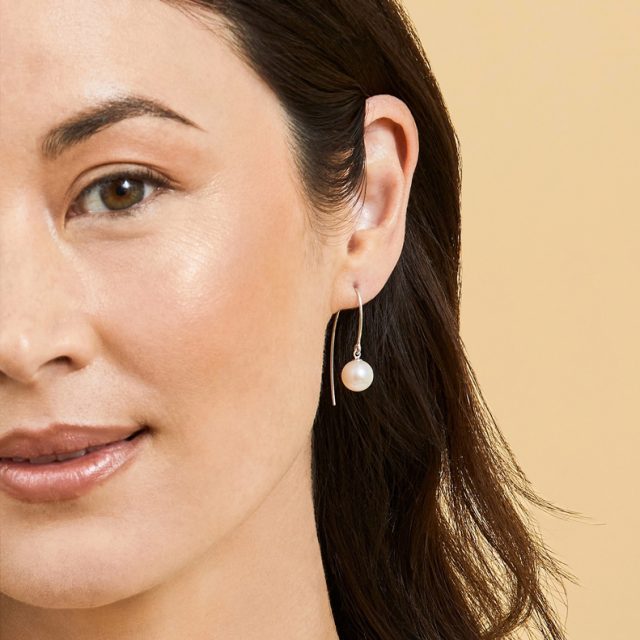
JEWELRY SPOTLIGHT:
The classics can never go wrong. And when it comes to bling, pearls truly stand the test of time. Browse our wide range of studs, hoops, drop and dangle styles and shop premium quality Pearl Earrings featuring gems in every color of the rainbow at 75% off retail prices.
Download our full study on Jewelry Facts and Fiction below!
[ad_2]
Source link

